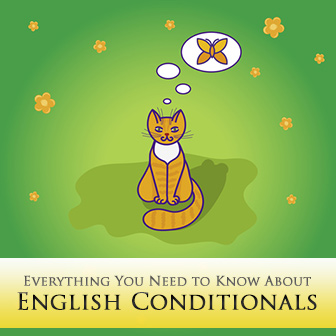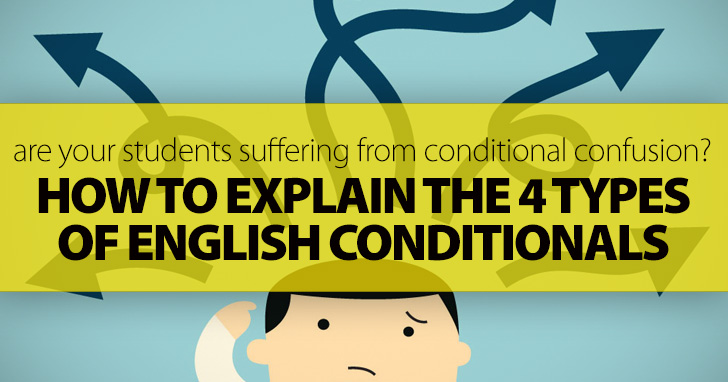Everything You Need to Know About English Conditionals: When the Present Isn’t and the Past Wasn’t


Since they talk about real and unreal pasts, presents, and futures, sentences get complicated quickly. If you are ready to introduce your students to the conditional structure in English, here is a basic summary of the four different patterns they will need to know.

The first type of conditionals are generalized cause and effect statements. These statements, also known as zero conditionals, express a natural and consistent consequence for a particular set of conditions. They are a general truth. These conditions have happened in the past, still happen today, and will continue to happen in the future.
Like any other conditional statement, zero conditionals have an if-clause and a result clause. The if-clause states the condition, and it is expressed in the simple present tense. The result clause is the independent clause, and it is also expressed in the simple present tense. (Like any good grammar point, there are exceptions to the present tense/present tense rule, but if you are just introducing conditionals to your students or are trying to clear up confusion, keep it simple for now and introduce the exceptions later.)
One type of conditionals, often referred to as first conditionals, are used to talk about possible future events. We can predict lots of events that might happen in the future, and an English speaker communicated those events or circumstances in the if-clause of his conditional statement. As with zero conditionals, first conditionals consist of an if-clause (the dependent clause) as well as a result clause (the independent clause). For future events, ones that are possible, the condition expressed in the if-clauses uses the simple present tense even though that condition is happening in the future. If he calls you tonight…if she gets accepted to the school…if we don’t get home on time… The result clause can be expressed with three different structures depending on what the speaker is trying to say.
For simple predictions, the result clause should be expressed in the simple future tense.
A speaker might also want to give instructions in a result clause, and if so he or she should us the imperative structure in the result clause.
A third possibility for the result clause of a possible future conditional is the use of a modal verb.
The key for your students to remember is that future conditionals have an if-clause that is expressed in the simple present. The verb tense of the result clause will then depend on what the speaker wants to say about that future.
We all like to dream about futures that we know will never happen – winning the lottery, getting discovered and becoming famous, winning a Nobel peace prize. For some people these futures are possible, but for the rest of us we already know they will never happen. And that is exactly when it’s time to use second conditionals. Like any other conditional sentence, those that talk about an unreal or impossible future have both an if-clause and a result clause. The if-clause refers to a future situation, one that really has no chance of happening. To indicate such a set of conditions, a speaker uses the simple past in the if-clause. The result clause in second conditionals uses would with the base verb.
Do you ever wish you could have done something differently in your past? If so, you might express your wishes using a third conditional. This structure is used to talk about events that did not happen in the past (and cannot happen in the future) and the results that also did not happen. For both the condition and the results, the events are impossible since they should have happened in the past but did not. Third conditionals express these ideas again with an if-clause and a result clause. For unreal past events, speakers should use the past perfect in the if-clause (the circumstances that did not happen). The result clause (that also did not happen) is expressed with would have + the past participle of the verb.
Also keep in mind that it is possible to use could have, might have, or should have for result clauses in third conditionals.
Now that your students know the basics of conditionals, give them some practice. You can find activities that review each of the four types of conditionals in English right here on Busy Teacher.
Share them with us in the comments below.